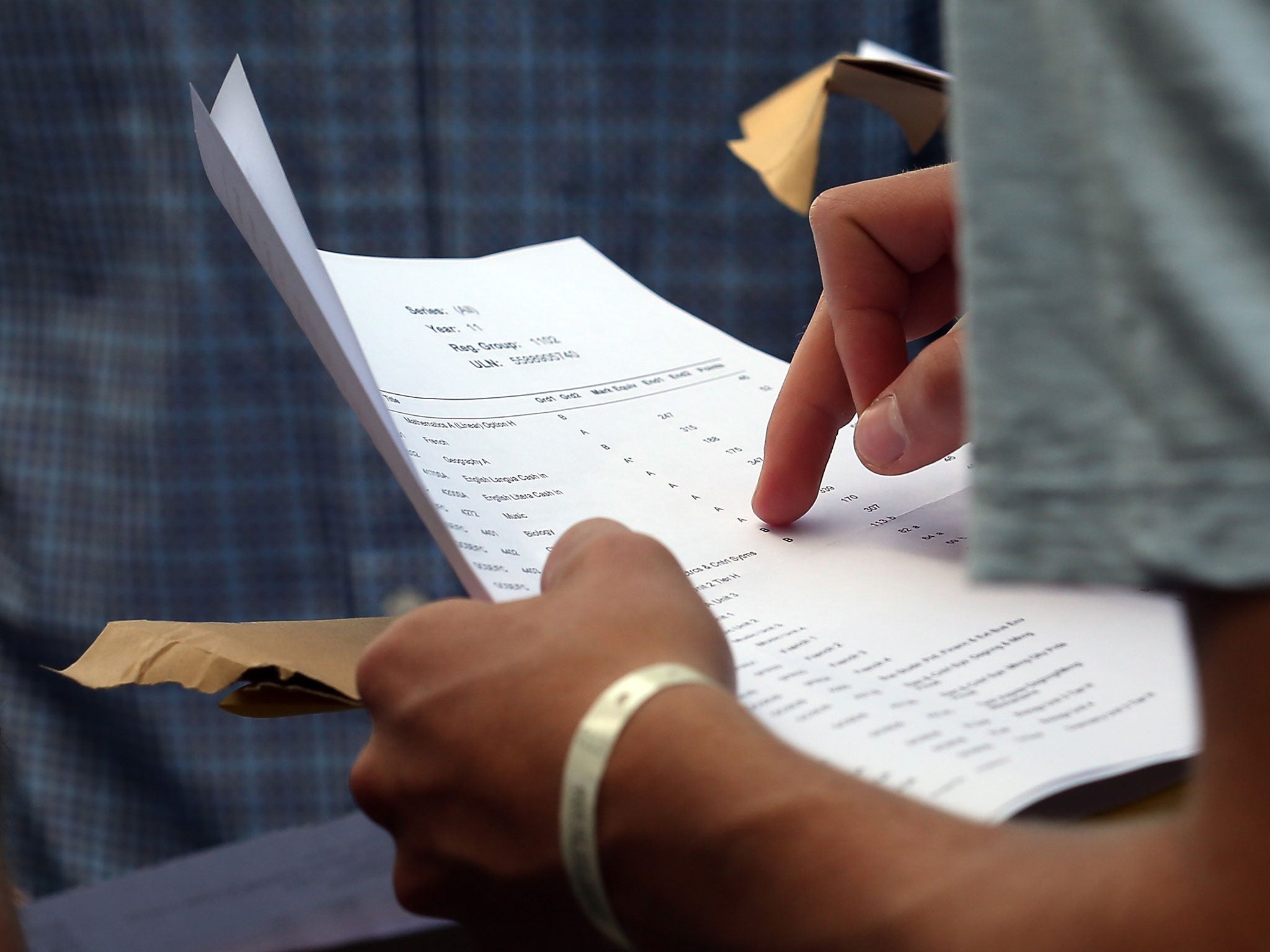German language A-level 'in danger of becoming extinct due to shoddy marking standards'
Experts say poorly-designed questions make it difficult for examiners to assess who are the brightest children

German is in danger of becoming extinct as an A-level subject because of shoddy marking standards, independent school headteachers will warn.
The situation is so serious that the Headmasters’ and Headmistresses’ Conference – which represents 275 of the UK’s leading independent schools – have written to university admissions officers urging them not to place to place too much emphasis on getting an A or A* grade when offering a place.
William Richardson, general secretary of HMC, speaking at its annual conference in St Andrews, Scotland, said: “We’re writing to tutors to tell them – when making their place offers – that schools no longer have confidence in the grades that students are getting.”
He said they need to consider that and not place too much reliance on getting a top grade pass.
Concern over marking standards in modern foreign languages exams have dogged the examination system for several years now. Experts say this is due to poor design of the questions – there are fewer hard or easy questions so examiners find it difficult to assess who are the bright children because they are given fewer opportunities to show their talents.
A survey by the Independent schools Modern Languages Association and HMC revealed - against school predictions - inconsistency of grading had been more pronounced this summer than in previous years.
It added: “There are sever problems with the grading of German … In most cases, it is the more able pupils who have been penalised.”
It concluded there had been 2little change in confidence overall – and most comments indicate a lack of faith/ intelligibility in the awarding process.”
Peter Hamilton, chairman of the HMC’s academic policy committee and headmaster of Haberdashers’ Aske’s school in Hertfordshire, said: “This country is in grave danger of not producing any decent linguists at all in the future.
“Some talented pupils are thinking about modern foreign languages: ‘It’s a bit too risky – I’m not going to be assessed properly – I’d rather try something else’.
“Why is it they’re not able to award grades properly? It can’t be right that students who get A’s or A* grades in two of their other subjects don’t do so in modern foreign languages.”
Christopher King, chairman of HMC and head of Leicester Grammar School, added: “”The inconsistency of grading is more pronounced this year. No school is entirely happy with their results. German is in danger of disappearing altogether because more abled students are being penalised.”
The number of students opting for A-levels in laguages has fallen in the past decide – with German suffering more than other subjects. It is now in third place in terms of popularity with just over 4,000 students taking it – having been overtaken by Spanish. French is still the most popular language in schools.
School lunches around the world
Show all 9Heads’ concerns over the marking of modern foreign language A-level papers come on top of general concerns over marking standards. A total of 77,450 A-level papers were remarked last year – a 42 per cent rise on the previous year’s figures.
Mr King suggested examiners should be paid more to attract a higher quality of examiner.
Glenys Stacey, chief executive of Ofqual – the exam regulator, is expected to be grilled on heads’ concerns when she addresses the conference tomorrow (Thursday).
In 2015, Ofqual published research showing the design of question-setting was distorting the distribution of grades. It demanded changes which were expected to help examiners recognise the talents of the brightest pupils.
However, the awarding of A* in German fell despite the changes. At GCSE level entries in all three of the main languages – French, Spanish and german – fell to 158,000, 91,000 qnd 54,000 respectively.
Subscribe to Independent Premium to bookmark this article
Want to bookmark your favourite articles and stories to read or reference later? Start your Independent Premium subscription today.

Join our commenting forum
Join thought-provoking conversations, follow other Independent readers and see their replies